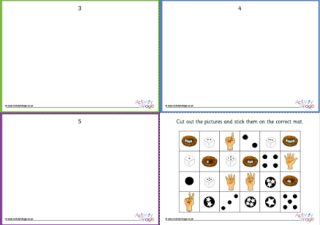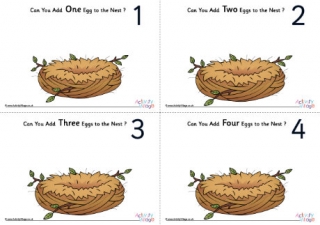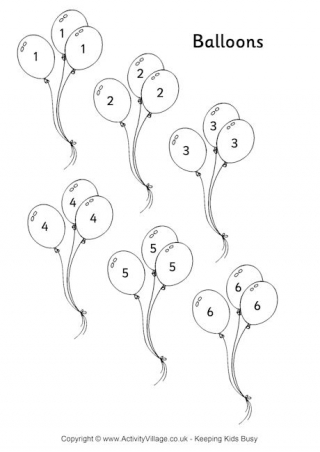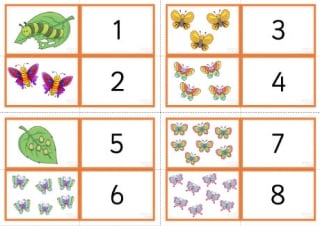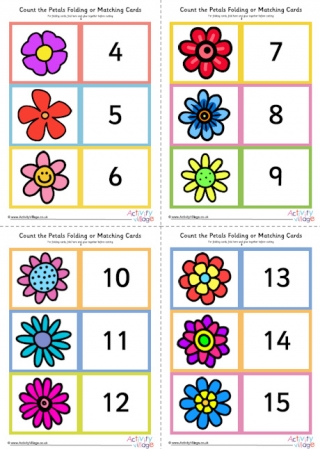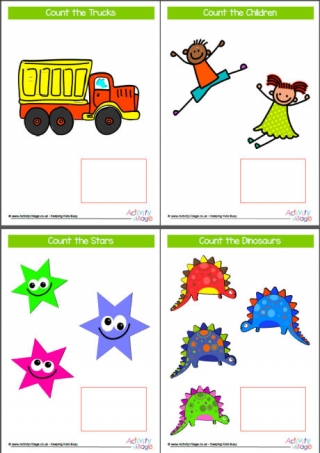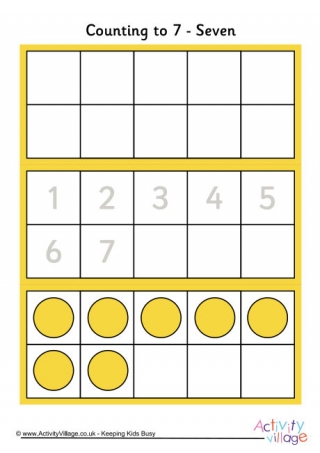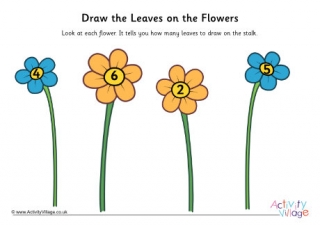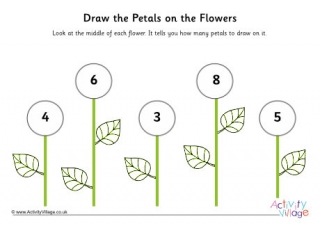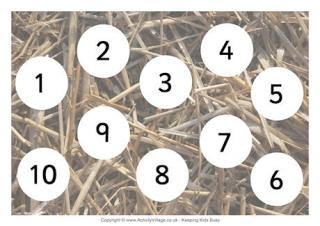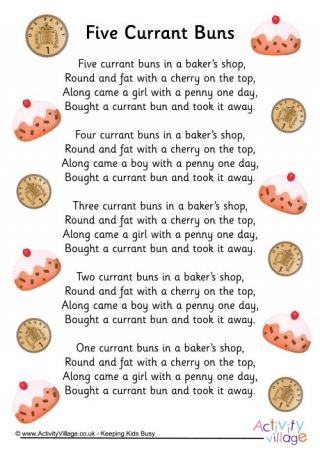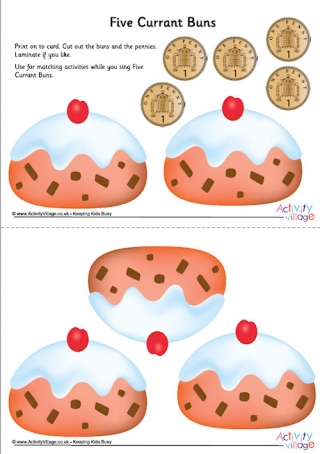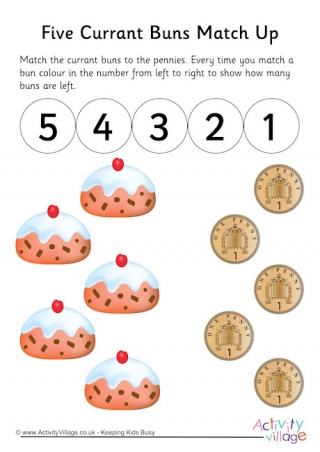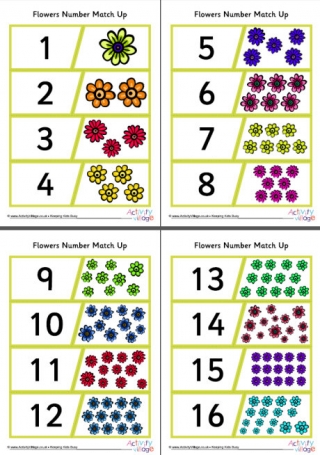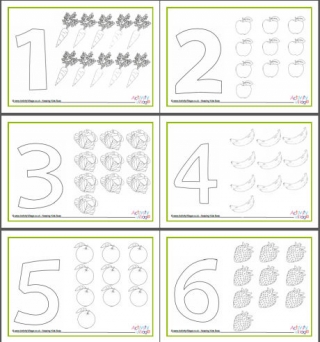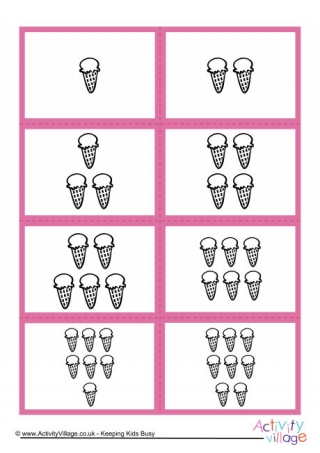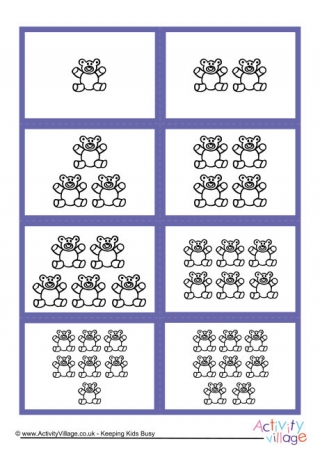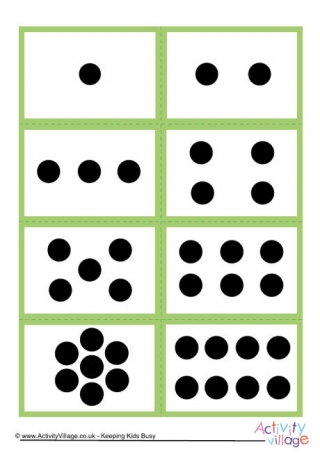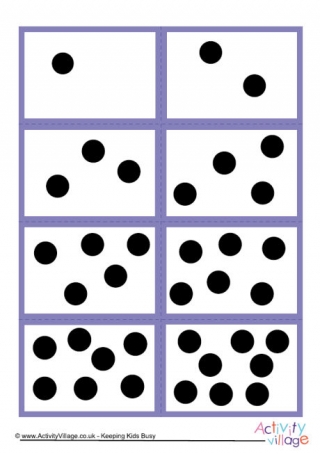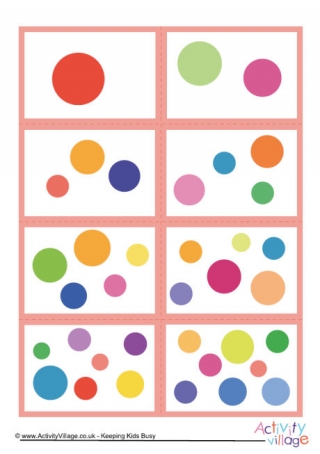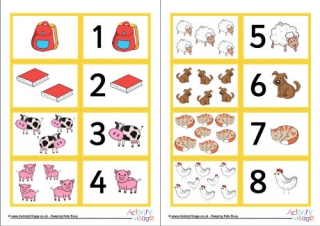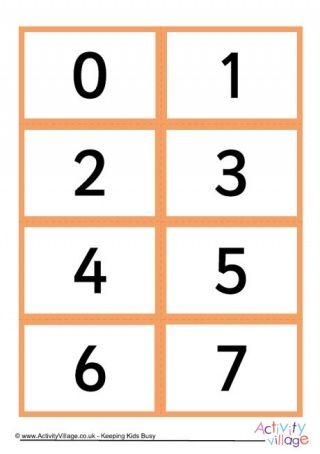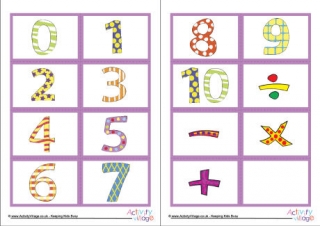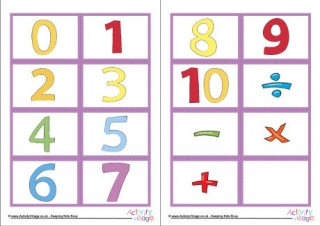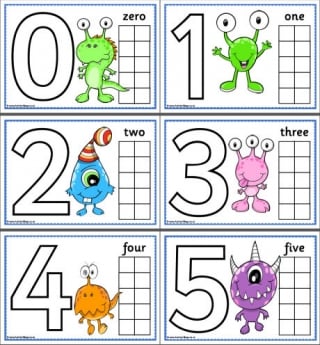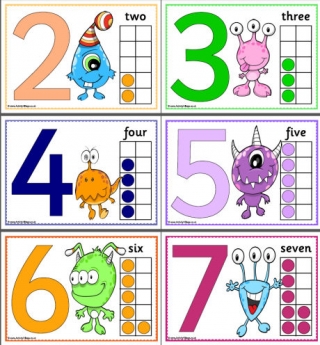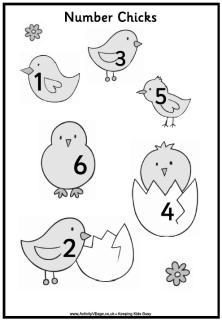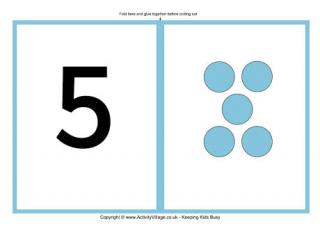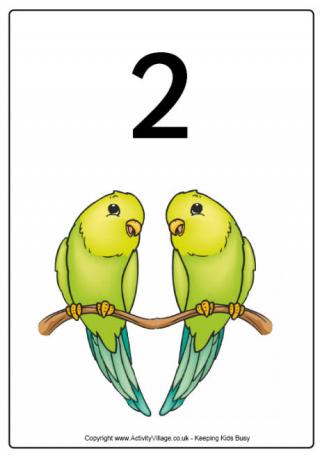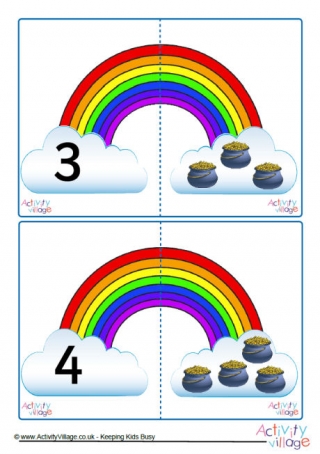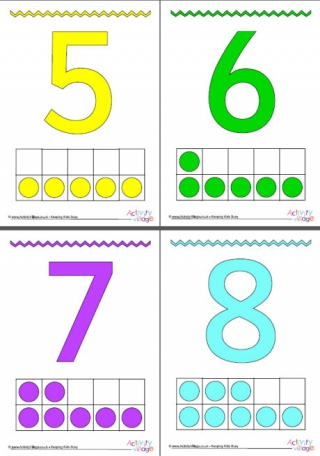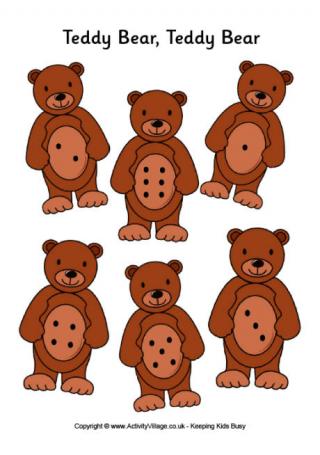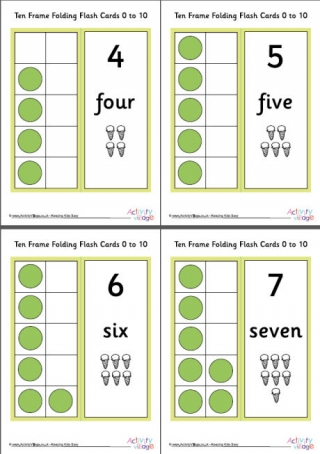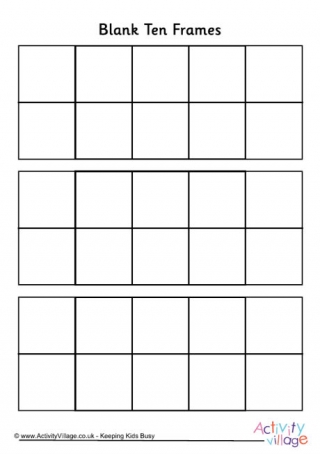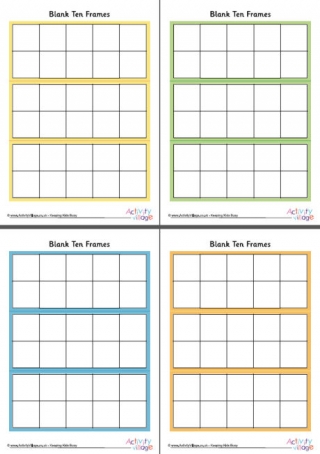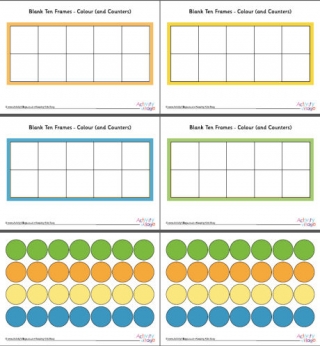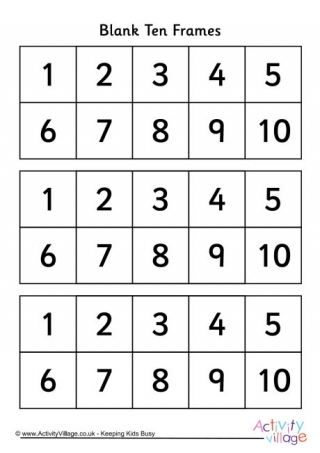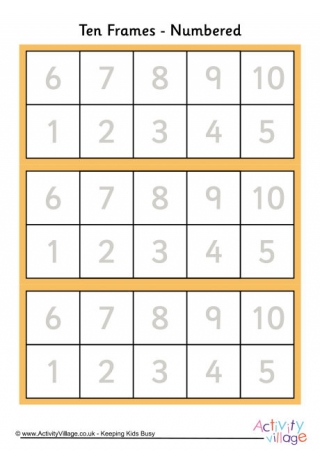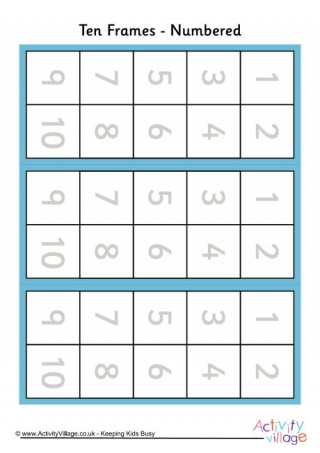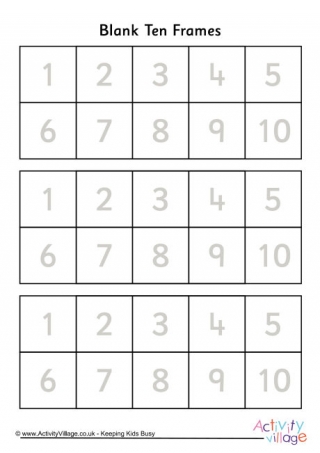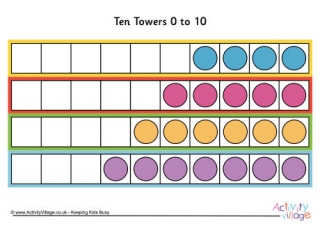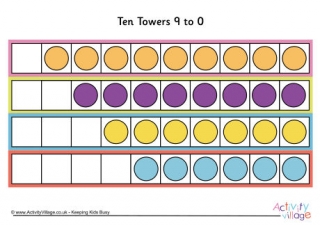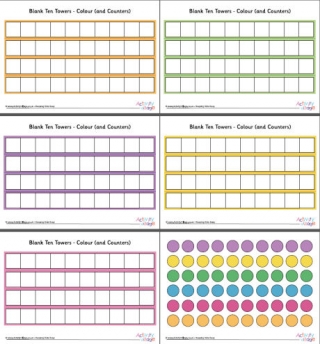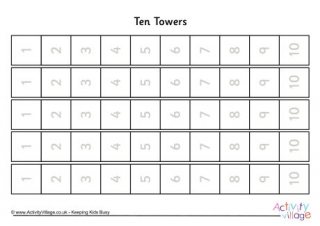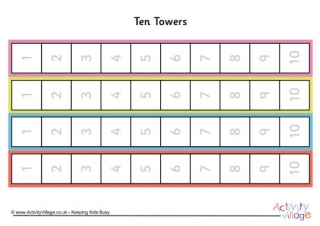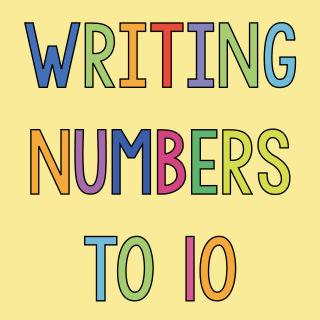What does a number mean? Many toddlers can count by rote, having listened to you and perhaps older siblings. But that doesn't mean they understand what the numbers mean. We need to show that the objects being counted relate to the numbers being spoken. We teach one to one correspondence by showing children how to match one object with another object, two objects with two objects and so on. By doing this we begin to give them a sense of what numbers really mean and how they can be used.
One to One Correspondence Every Day
- Touch objects as you count them and teach your child to do the same. Start by counting up to 2, then 3, then 4 and so on, increasing only when your child is confident.
- Count objects. Gather a collection of 10 little objects. You could use large buttons, bricks or other miniature toys, or a set of pebbles. Put the number you are working on into a container and then count them out. You could use our ten frame or ten tower printables (below) and ask your child to place one object onto a dot as they count.
- Make number jars. Collect 10 little containers (plastic jars are ideal) and some blank or number stickers. Put a colourful number sticker on each jar lid, or print out our round number cards here. Now put the appropriate number of little objects into the jars. It's extra fun if you can put a different type of object into each jar. Use them for counting practice with or without our ten frame or ten tower printables.
- Use kitchen aids! Grab an egg carton or muffin tin and place a number in the bottom of each container. Count the appropriate number of buttons into each container.
- Play simple dice games. You will find some appropriate dice games with printables below.
- Count as you move. Movement helps many children learn. Count steps as you climb. Jump and count. Stomp and count. Clap and count.
- Use favourite toys. An abacus is a great tool for learning one to one correspondence. A tea set is fun: put out 2 saucers and then match them with 2 tea cups. Find 3 red lego bricks and match them with 3 blue lego bricks. counting as you go. You will find many more ideas in the toy cupboard!
Something to Work On
One aspect of one to one correspondence that some children struggle with is that things might look different but still be the same number.
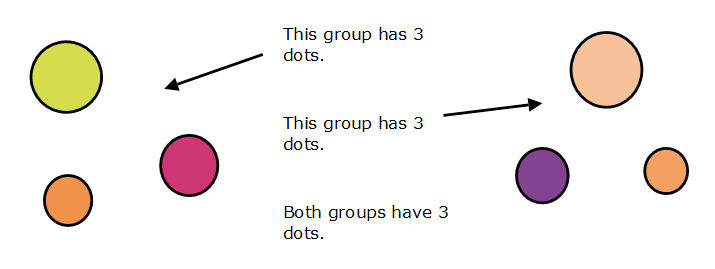
- Muddle up! Arrange a number of objects in an ordered pattern and ask children to count them. Now muddle them up and ask children to count them again. Gather them up, put them in a box, shake the box and then lay them out to be counted again. You get the idea!
- Match up any of our Number Cards and with real objects. You could treat this like a treasure hunt, putting groups of objects around the room for children to discover, count and "match up".
- Play mixing and matching games with our Mix and Match cards below.
- On paper: Try our Match Up Worksheets Set 1 below.
Our Resources
We've got 2 pages of images to cut out and stick and 5 sorting mats to stick them to! See how quickly the kids can sort the pictures onto the mats. This will help them to develop their subitising skills, looking at a range of patterns.
You can use these pages in many different ways. Children add the required number of eggs to the nest - from 1 to 10. Laminate the pages and use them as playdough mats, asking children to make the eggs out of playdough.
Balloons is an ideal early learning dice game for little kids. We've got a fun printable and 4 variations to play with different ages.
Count the pictures - all caterpillars and butterflies - and match to the right number card. Alternatively, fold the cards in half down the centre and glue back to back to form double-sided flash cards.
Count the petals! Our pretty flowers with from 4 petals to 20 petals challenge the kids to count. Use this set as double-sided flashcards by folding, or cut them all apart for some matching activities. Start with just a few cards with lower numbers and then work up.
These posters have been designed with lovely, bright illustrations that we hope the kids will love to count!
We've designed this set of 10 printable pages so that you can use it in many different ways.
This pretty worksheet asks children to draw the correct number of leaves on each flower.
Look at the number in the centre of each flower. Draw the required number of petals!
The more hands-on practice young children have with counting, the easier it becomes to visualize numbers and give meaning to them. This farmyard game makes early learning fun!
Sing along (or just read, if you prefer) to the traditional song, Five Currant Buns. It is great for familiarising children with the numbers 1 to 5, and also, of course, is an early introduction to "taking away" or subtracting.
Use this lovely printable for a role play activity along with the song Five Currant Buns. Print onto card and cut out, laminating for durability if you wish. You could attach velcro to the back and use on a felt board, too.
This simple worksheet asks children to match each penny to a currant bun - just like in the rhyme Five Currant Buns. As they do that, colour in one of the numbers from left to right to see how many currant buns are left.
Practise counting with these pretty flower number match up cards! Print out the five pages in the PDF file onto some card, cut each pair in half then mix up and give to the kids to reassemble.
Count and colour the correct number of fruits and vegetables and then make a number shape out of playdough. Or ask the kids to put a blob of playdough on top of, or model, the correct number of fruit and veg.
Here is a fun way to practice counting and tie it in with everyone's favourite spooky holiday! There are 4 pages to this pdf file. Print onto card, cut each pair apart, and give to the kids to reassemble.
Practise counting skills with these fun harvest match the numbers jigsaw cards. Cut out each jigsaw card and then cut each one into two pieces following the line in the middle.
Count the ice cream cones on each card and play matching games with the other mix and match cards in our collection.
This set of picture cards - from our Mix and Match cards collection - has from 1 to 10 stars for the kids to count. It's fun to play matching games with them or use them in other counting activities.
This set of cards - part of our Mix and Match collection - provide up to 10 teddies for the kids to count! Use them on their own or match them up with number cards or other picture cards from the collection.
Our first set of "dot" cards in our mix and match series has fairly regular patterns and simple black dots. Match them to numbers, number words, pictures or other dot cards in the series. Blank cards are included.
When children are learning to count, sometimes the placement of objects confuses them. They might count 5 dots on our Dot Cards set 1 but not recognise that ther are also 5 dots on the appropriate card in this set, now that the dots are jumbled around and not in a regular pattern.
The dots on this set of mix and match number cards have changed colour and size - but there are still the numbers 1 to 10 for the children to count and match with other cards in our mix and match series!
We've added pictures to this set of number cards - extra fun for kids learning to count. You can use these cards double-sided by folding along the central vertical line and gluing the pictures back to back.
This set of mix and match number cards includes the numbers 0 to 10, as well as variations on the 1, 4, 7, 9 and 10 to choose from. Use them with the other mix and match cards in the series, or in simple number and counting activities as mini flash cards.
Numbers don't have to be dull. They can come striped or checked or spotted in all sorts of fun colours! This set - part of our mix and match number card series - includes numbers 0 to 10 and four mathematical operators for when you start doing "sums".
Here is a set of brightly coloured numbers (and maths symbols) to add to our mix and match number card collection. Use them with our dot cards, picture cards, word cards and so on - or just on their own.
Have some fun with these bright and appealing monster number playdough mats, each featuring a rather adorable monster to encourage the kids in their endeavours! Fill in the number with playdough and then put the correct number of blobs of playdough into the ten frame.
This gorgeous colourful monster number posters definitely catch the eye! Each one contains an adorable monster, a big and bold number, and a ten frame with the appropriate number of counters for visualisation and counting practice.
Number Chicks is a dice game which helps children with number recognition and includes a fast and fun variation for older kids. You can play it as a pencil and paper game with our printable sheet, or as a file folder or board game using our printable game board.
Practice counting and number recognition with these fun printable number cards - in large size! They print one to a page and we have numbers 1-10. Print onto card or good white paper, fold where indicated and glue together before cutting out.
These lovely picture number posters will brighten up the classroom or home. Count the objects and match them with the number at the top of the poster. You'll count parrots and goldfish, candles and fingers and a few other things too!
Print out our number matching cards onto cardstock and cut out. Can the kids match the number on the left with the correct numbers of "pots of gold" on the right?
You can use this set of simple number mats, featuring numbers 1 to 10, in many ways. Start by counting the dots, using a finger with youngest children. Then give children a pile of counters and help them count out the correct number, covering over the dots one by one.
Teddy Bear, Teddy Bear is an ideal introduction to dice games for very young children. They can learn to count the dots on the die and begin to recognise the patterns on the die by looking for the matching pattern on the teddies.
Using ten frames really helps children to visualise numbers, understand one to one correspondence and build their counting skills. This set of flash cards has 11 cards from 0 to 10 and can be used as folding, double sided flash cards or as 2 separate sets - perhaps for matching activities.
This is our simplest ten frames printable, with 3 black and white frames to print and cut out for your counting activities.
These useful ten frames print 3 to a page and come in 4 different, cheerful colours. Print the whole set and you will have 12 ten frames ready to use or perhaps to laminate first for durability. We've designed them so they are quick and easy to slice or cut apart.
This pdf file contains 4 large ten frames with different coloured backgrounds, perfect for counting activities with younger children. Cut them out then laminate them to make them extra glossy and durable! We've included an abundance of counters to cut out too, if you wish.
These simple ten frames can be used for display, to sit on tables for reference and for counting and matching activities. Print 3 to a page and choose from UK or US fonts below.
There are four colours in each pack of 10 frames, with greyed out numbers for the kids to use as reference and an aid to counting. They are the perfect size for adding counters, snap cubes or other counting aids.
Choose from 4 packs of 10 frames below, each containing 3 different colours with 3 of each per page - perfect for classroom use. These are for when you want to give extra help to the kids and stand the ten frames vertically. Set 1 numbers them from top down, and set 2 numbers them from top up.
There are three useful 10 frames to print per page, with greyed out letters which the children can use as counting reference, or perhaps to trace over.
This useful Ten Towers printable can be used for counting practice or for display. Cut the "ten towers" apart (and laminate each one individually if you wish).
Use this set of Ten Towers together with our Ten Towers 0 to 10 for practice in counting up to 10 and counting down from 10!
Here is a simple page of blank black and white ten towers to print and cut out. Laminate for repeat use or stick them into a workbook. Alternatively cut the whole block of ten towers out or just turn the page and use them for counting and number activities.
This set of Ten Towers includes 5 pages of coloured ten towers to cut out into separate towers or use in blocks of 4. We've also included a variety of counters, should you need some.
These simple black and white Ten Towers can help with counting activities, number bonds to 10, first addition, counting on and so on. Choose from 4 versions: with UK and US school fonts, and numbered up and down from 10.
Here are some colour versions of our Ten Towers, numbered both up and down from 10. Print and cut out 4 different towers to make counting colourful and fun. Choose from UK or US school fonts too.


